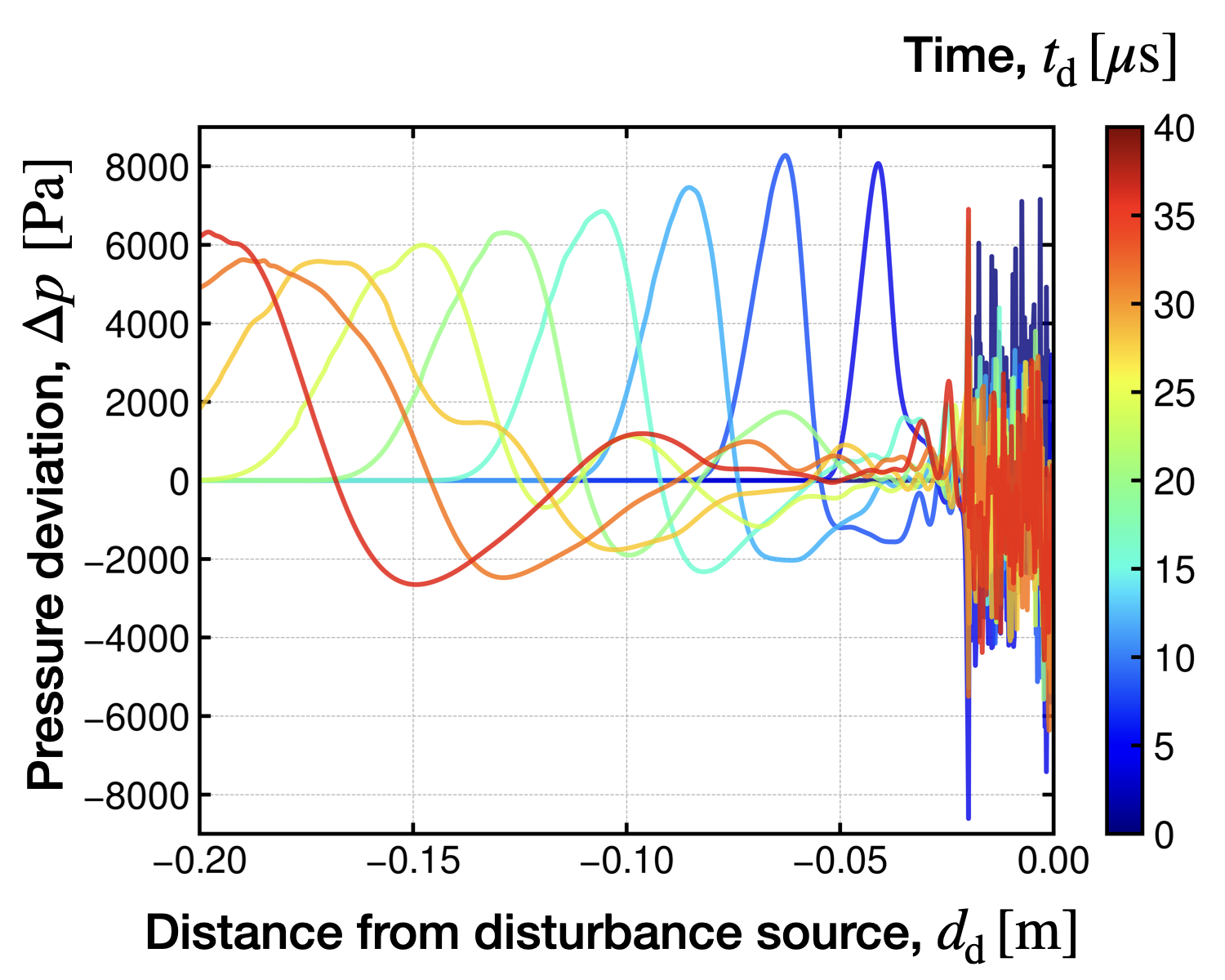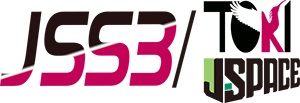Study on Physics and Modeling of Turbulent Transitions in Boundary Layer of Hypersonic Flows
JAXA Supercomputer System Annual Report February 2022-January 2023
Report Number: R22EACA53
Subject Category: JSS Inter-University Research
- Responsible Representative: Naofumi Ohnishi, Professor, Tohoku University
- Contact Information: Hiroki Sakamoto, Tohoku University(hiroki.sakamoto.s1@dc.tohoku.ac.jp)
- Members: Naofumi Ohnishi, Yasuhito Okano, Hiroki Sakamoto
Abstract
An expansion tube, a ground-based facility that generates hypersonic flow, is expected to be a shock wind tunnel that can experimentally simulate the flow at superorbital reentry. There is concern that turbulent transition in the expansion tube may have adverse effects on the state of the test flow. However, it is not clear whether turbulent transition can actually occur. In this study, numerical simulations were conducted to investigate the possibility of turbulent transition in an expansion tube.
Reference URL
N/A
Reasons and benefits of using JAXA Supercomputer System
In order to investigate the possibility of turbulence transition, it is important to capture the propagation of small disturbances. Hence, high-resolution numerical simulation suppressing numerical perturbations and dissipation is required. However, such a numerical simulation requires a high computational cost. Therefore, it is necessary to use the supercomputer owned by JAXA.
Achievements of the Year
An artificial disturbance was added to the boundary layer behind a shock wave propagating in an expansion tube, and the development of the disturbance was investigated. Specifically, a flow field behind a shock wave propagating in an expansion tube was transformed into shock stationary frame, which is an inertial system in which the shock wave appears to be stationary, and numerical simulations are conducted. In addition, blowing / suction disturbance was randomly added to the wall of the boundary layer behind the shock wave. According to the variation of the downstream wall pressure with the added disturbance, a specific wavelength is found to grow (Fig. 1). This suggests that the added disturbance grew due to flow instability and turbulent transitions might occur in the expansion tube.

Fig.1: Deviation of the pressure on the wall behind the disturbance location. The line colors indicate the time since the disturbance was added.
Publications
– Non peer-reviewed papers
1) Hiroki Sakamoto, Shintaro Sato, and Naofumi Ohnishi, “Computation of Hypersonic Boundary Layer Transition behind Propagating Shock Wave”, AIAA Paper 2023-1233.
2) Yasuhito Okano, Shintaro Sato, Naofumi Ohnishi, and Hiroki Nagai, “Numerical Study on Suppression of Reentry Capsule Dynamic Instability in Transonic Flow”, AIAA Paper 2023-0811.
– Oral Presentations
1) Hiroki Sakamoto, Shintaro Sato, and Naofumi Ohnishi, “Computation of Hypersonic Boundary Layer Transition behind Propagating Shock Wave”, AIAA SciTech 2023 Forum, Washington D.C., January 2023.
2) Yasuhito Okano, Shintaro Sato, Naofumi Ohnishi, and Hiroki Nagai, “Numerical Study on Suppression of Reentry Capsule Dynamic Instability in Transonic Flow”, AIAA SciTech 2023 Forum, Washington D.C., January 2023.
Usage of JSS
Computational Information
- Process Parallelization Methods: MPI
- Thread Parallelization Methods: N/A
- Number of Processes: 12 – 2160
- Elapsed Time per Case: 120 Hour(s)
JSS3 Resources Used
Fraction of Usage in Total Resources*1(%): 0.42
Details
Please refer to System Configuration of JSS3 for the system configuration and major specifications of JSS3.
| System Name | CPU Resources Used(Core x Hours) | Fraction of Usage*2(%) |
|---|---|---|
| TOKI-SORA | 2227770.99 | 0.10 |
| TOKI-ST | 2584039.87 | 2.58 |
| TOKI-GP | 0.00 | 0.00 |
| TOKI-XM | 1289.16 | 0.81 |
| TOKI-LM | 9802.54 | 0.66 |
| TOKI-TST | 90148.96 | 2.38 |
| TOKI-TGP | 0.00 | 0.00 |
| TOKI-TLM | 0.00 | 0.00 |
| File System Name | Storage Assigned(GiB) | Fraction of Usage*2(%) |
|---|---|---|
| /home | 23.33 | 0.02 |
| /data and /data2 | 30820.00 | 0.24 |
| /ssd | 233.33 | 0.03 |
| Archiver Name | Storage Used(TiB) | Fraction of Usage*2(%) |
|---|---|---|
| J-SPACE | 0.00 | 0.00 |
*1: Fraction of Usage in Total Resources: Weighted average of three resource types (Computing, File System, and Archiver).
*2: Fraction of Usage:Percentage of usage relative to each resource used in one year.
ISV Software Licenses Used
| ISV Software Licenses Used(Hours) | Fraction of Usage*2(%) | |
|---|---|---|
| ISV Software Licenses(Total) | 0.00 | 0.00 |
*2: Fraction of Usage:Percentage of usage relative to each resource used in one year.
JAXA Supercomputer System Annual Report February 2022-January 2023


